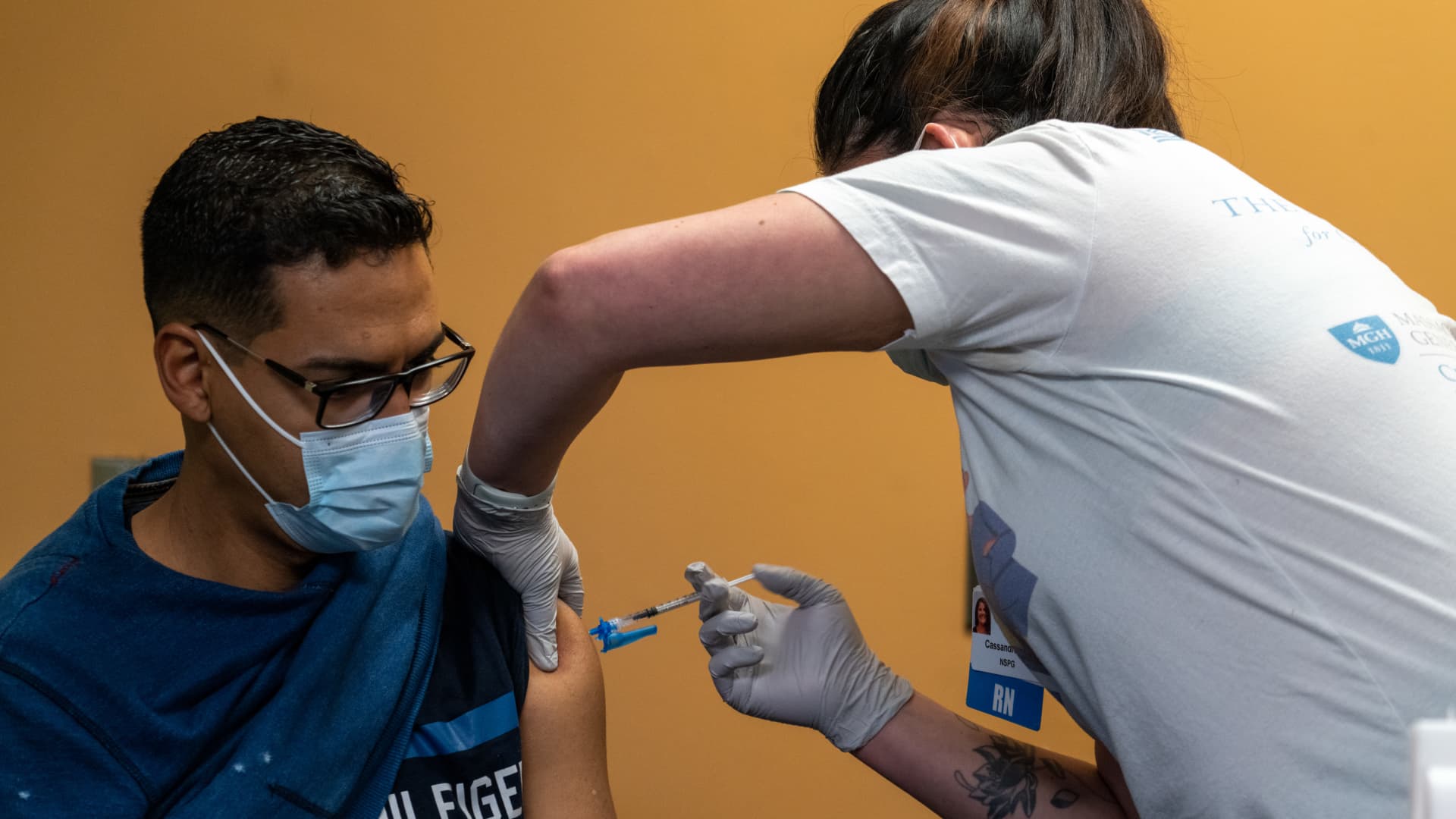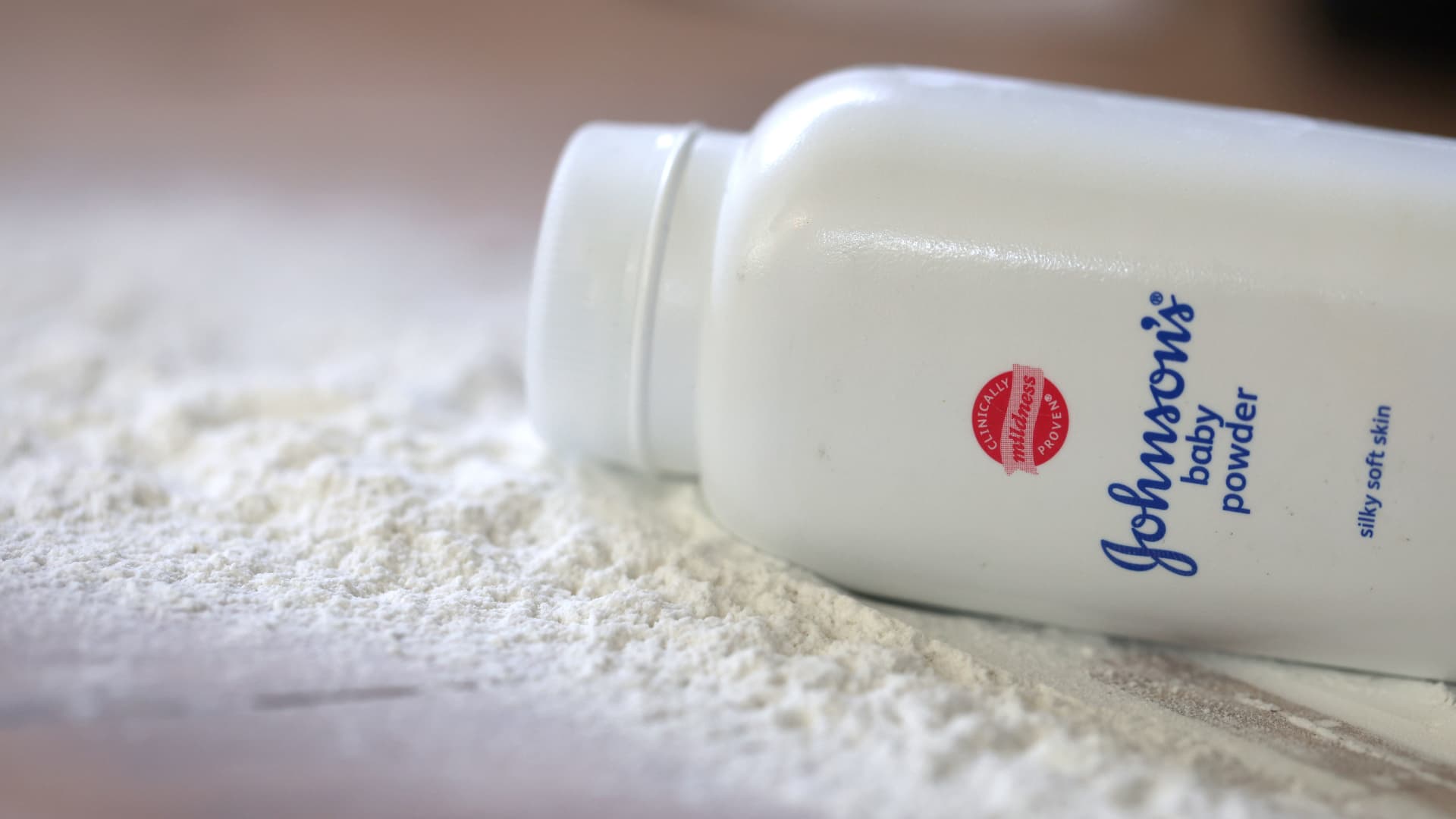FDA says Covid vaccines may need to be updated to ensure high level of effectiveness against virus
The FDA's committee of vaccine experts will meet Wednesday to discuss how the U.S. should go about changing the current ones if needed.

A healthcare worker administers a dose of the Pfizer-BioNTech Covid-19 vaccine at a vaccination clinic in the Peabody Institute Library in Peabody, Massachusetts, U.S., on Wednesday, Jan. 26, 2022.
Vanessa Leroy | Bloomberg | Getty Images
The currently approved Covid-19 vaccines may need an update to ensure a high level of protection as the virus continues to evolve, according to the Food and Drug Administration.
The FDA, in a briefing document published ahead of an advisory committee meeting this week, said scientists still don't entirely understand Covid variants and the effectiveness of the vaccines. For example, mutations to the spike protein, which is used by the virus to invade human cells, have reduced effectiveness of current vaccines. That's because today's Covid shots were developed to target the spike protein in the original strain of the virus that emerged in Wuhan, China in late 2019.
The FDA's advisory committee of outside vaccine experts on Wednesday will discuss how the U.S. can develop a transparent process to make recommendations about changing the composition of the current ones if needed. Pfizer and Moderna are conducting clinical trials on vaccines based on the omicron variant, the dominant version of the virus worldwide. Omicron and its rapidly spreading subvariant BA.2 have numerous mutations that give them an enhanced capability to breakthrough the vaccines and cause infections that normally result in mild illness.
The effectiveness of Pfizer or Moderna's two-dose vaccines against mild illness from omicron dropped from 70% to just 10% 25 weeks after the second shot, according to the U.K. Health Security Agency. A third dose increases protection to 75% for about four weeks, but it then declines to between 25% to 40% after 15 weeks. The effectiveness of two vaccine doses against hospitalization from omicron dropped from 71% to 54% after five months, according to the Centers for Disease Control and Prevention. A third shot increased protection to 91%, which then declined to 78% after four months.
When the vaccines were first authorized in December 2020 they were 90% effective at preventing infections that resulted in symptoms, according to the CDC.
The FDA, in the briefing document, said it is impossible to predict which variant will become dominant and for how long, creating a practical limit to how often the vaccines can be modified. The drug regulator also said it needs to see clinical trial data before authorizing any changes in vaccine composition to ensure they are effective and do not raise safety concerns.
The FDA proposed using the process for updating flu vaccines as a guide to how Covid vaccines could be modified in the future. The World Health Organization meets twice a year to analyze the circulating flu variants and makes a recommendation on the composition of the vaccine.
The FDA's outside experts, the Vaccines and Related Biological Products Advisory Committee, meets to make its own recommendation, which the U.S. then accepts. The FDA is not bound by the WHO's flu vaccine recommendation, but the drug regulator normally comes to the same conclusion.
However, the FDA said in its briefing document that it may need to consider updating the Covid vaccines without a prior WHO recommendation. It's unclear if the spread of Covid will follow a pattern that would make a global recommendation on vaccine updates possible, the FDA said in the document.
The FDA advisory committee on Wednesday will also discuss whether fourth Covid shots may be warranted for younger people in the U.S. at some point. The drug regulator authorized fourth Pfizer and Moderna doses for adults ages 50 and older last week based on data from Israel indicating that an additional shot reduces mortality in older people. The FDA committee did not meet to make a recommendation before that decision, and it will not hold a vote on any recommendations Wednesday.
Dr. Peter Marks, head of the FDA office responsible for vaccine safety and efficacy, said last week that additional booster doses might be needed in the fall. Public health experts and epidemiologists say the U.S. could face another wave of Covid infection at that time as immunity from the vaccines wanes and people move indoors to escape the colder weather.

 BigThink
BigThink 
































